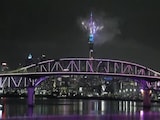To better understand their socially withdrawn children, several parents in South Korea are willingly undergoing confinement at a unique facility in the country called the ''Happiness Factory''. According to BBC, these parents are required to spend their time in small, isolated cells where phones and laptops are not allowed.
These tiny rooms, compact as store cupboards, are connected to the outside world only through a feeding hole in the door. Notably, several participants at the facility are parents of children who have completely withdrawn from society, seeking first-hand understanding of the isolation their children feel.
According to the report, reclusive young individuals like the children of these residents are often referred to as 'hikikomori'. The term originated in Japan in the 1990s to describe severe social withdrawal among adolescents and young adults. A survey by the South Korean Ministry of Health and Welfare found that over 5% of respondents aged 19 to 34 were living in isolation, translating to approximately 540,000 individuals nationwide.
Since April, parents have been participating in a 13-week parental education program funded and organized by non-governmental organizations (NGOs) such as the Korea Youth Foundation and the Blue Whale Recovery Centre. The program aims to equip parents with better communication skills to engage with their children effectively.
As part of this initiative, participants have to spend three days at a facility in Hongcheon-gun, Gangwon Province, where they experience confinement similar to that of their children. The intention behind this isolation is to provide them with a deeper insight into the experiences and feelings of their children.
Jin Young-hae, whose son has been isolating himself for three years, said that she now has a deeper understanding of her 24-year-old's "emotional prison." She revealed that her son has always been gifted, and both she and his father held high hopes for him. However, he faced frequent illness, struggled with maintaining friendships, and eventually developed an eating disorder, which made attending school challenging.
Witnessing him confined to his room, neglecting personal hygiene and meals deeply saddened her. To better understand him, Ms Young-hae visited the Happiness Factory and revealed that reading notes from other isolated young people helped her understand her son's silence.
Another parent, Park Han-sil, came for her 26-year-old son, who cut off all communication with the outside world seven years ago. ''I've realised that it's important to accept my child's life without forcing him into a specific mould,” she said.
According to research by the South Korean Ministry of Health and Welfare, difficulties in finding employment, interpersonal relationships, family problems, and health issues are the most common reasons driving young people into isolation.
South Korea has also one of the highest suicide rates in the world. Last year, the South Korean government implemented a five-year plan to address mental health, including biannual check-ups for people aged 20-34.















